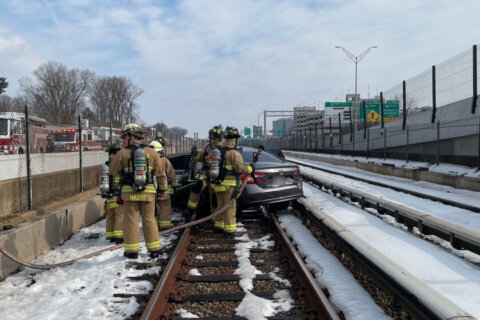As the warm weather approaches, Fairfax County, Virginia, police are issuing a warning about a scam that usually pops up in the springtime.
Driveway-paving scammers, the department said, typically look to exploit homeowners.
Sgt. Jacob Pearce, a public information officer with the department, said such scams involve driveway pavers who aren’t properly licensed or who might be soliciting against county policies “knocking on people’s door and defrauding them out of money or not completing work, or taking their deposits and running.”
The scam starts with a knock on the door, then someone offers a deal to repave or seal a driveway, or do some other type of stone or concrete work. It’s usually presented with a sense of urgency, Pearce said, as the person explains there’s some type of deal or that they only have enough supplies to complete the given project.
“They’ll try to get you to agree to a verbal contract or a written contract that requires some type of money deposit to start to work right away,” Pearce said. “That’s typically how it starts. Sometimes they’ll collect a deposit, maybe bring some gear to the job site, or they’ll even start digging up or destroying part of your driveway, and then just leaving the job unfinished, and leaving the homeowner out a deposit and with a destroyed driveway.”
Many times, Pearce said, the scam involves solicitor violations “at the very least, and at the very worst, there’s destruction of property and fraud.”
Any solicitor who knocks on a door in Fairfax County, Pearce said, should have a solicitor’s license. That license, Pearce said, should have their face, name and fingerprints on it. If they don’t have a valid license, police said, ask them to leave, close and lock the door and call the department to report the violation.
When hiring a contractor, police recommend asking to see a copy of their business license, getting multiple quotes from different contractors and conducting basic internet searches on their phone numbers and addresses.
Pearce said it’s also important to keep all communication you may have had with contractors.
“We’re trying to get out ahead and put some information out, so that people can spot a scam before it starts,” he said.
More tips for avoiding scams are available online.
Get breaking news and daily headlines delivered to your email inbox by signing up here.
© 2024 WTOP. All Rights Reserved. This website is not intended for users located within the European Economic Area.








